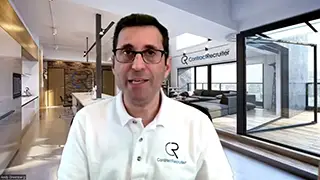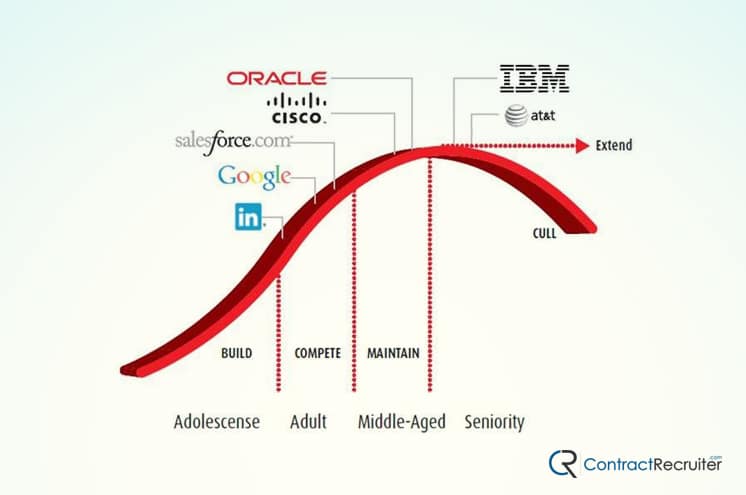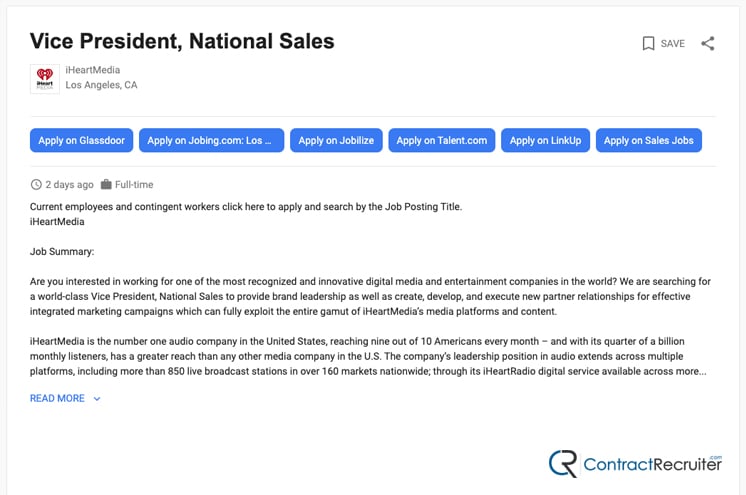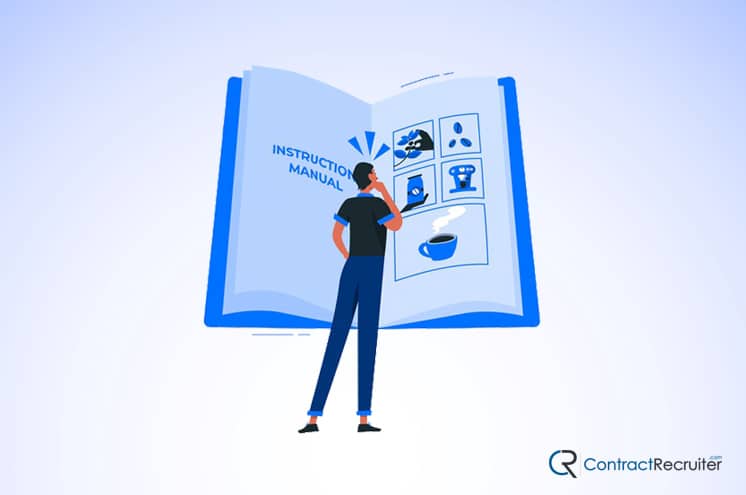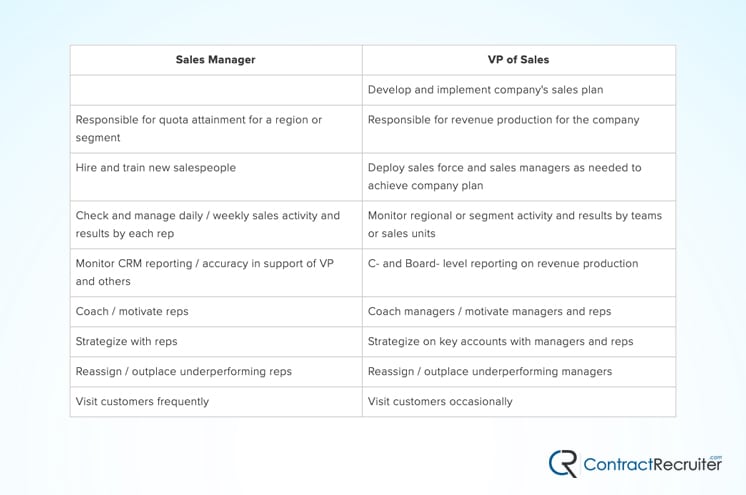One of the most important decisions you can make as a CEO is hiring your executive team. Among the many critical positions on that team, perhaps none is as important as your Vice President of Sales. Your VP of Sales is the person responsible for your sales teams, strategies, promotion, and training. Their job has a direct impact on the success of your business as a whole. A good VP of Sales can be the difference between a successful venture and a failed startup.
There’s a common saying in the industry that to succeed as a business, “You have to make it past the carcass of your first VP of Sales.” Most sales VPs fail in the first year, and it takes a lot of work to figure out what went wrong and hire someone good enough to fix it. With that said, however, it’s entirely possible to avoid this pitfall. Putting the right processes in place and hiring a talented sales VP right out the gate can accelerate your growth immensely.
When making this hiring decision, how should you go about it? Here are our top tips.
1. Understand Sales VP Variations
Steve W. Martin has this to say:
“As a sales training consultant and an adjunct professor and USC’s Marshall School of Business, I have had the opportunity to study the sales management styles of nearly one thousand VPs of sales and have found there are five common types.”
These types are:
- Mentors are hands-off managers who believe in the consultative selling approach, and who thrive on a charismatic leadership style that encourages the entire team to succeed.
- Expressive managers are VPs who prefer to get their hands dirty in the field, closing major deals, rather than dealing with the day to day management tasks that bore them.
- Sergeants are leaders of their teams first and foremost and may put their team ahead of the company as a whole. They inspire fierce loyalty and are loyal in return, but may reject company policies that hurt their team.
- Overconfident VPs are Rockstar leaders who strive to make each member of their team a gladiator in the sales arena but may make a sales environment more cutthroat and less collaborative.
- Micromanagers thrive on organization and methodical planning and build teams they can direct down to the smallest detail.
Each style has its pros and cons, and knowing which you can work with (and which will benefit your company the most) is crucial.
2. Understand Your Company’s Position
Another quote from Martin:
“Every sales organization can be classified based on its size (small, medium, large) and whether it is in a “build,” “compete,” “maintain,” or “cull” stage.”
These stages define the kind of sales VP you want to hire. Hiring the wrong VP for the style will inevitably put you in a bad situation.
- Build-stage teams are new to the market and are focused on growing and building market share. They identify and outmaneuver the competition, poach customers, and push aggressive awareness and sales techniques.
- Compete-stage teams fend off competition from all sides and focus on growth while promoting the company’s products.
- Maintain-stage teams have settled into a defined market share that is difficult or impossible to adjust and focus on maintaining that position over struggling against the odds to grow.
- Cull-stage teams adjust the profit margins from the other side, cutting costs by dialing back on inefficiencies and pruning down teams to their most effective limits.
Defining your business size and position in the market allows you to find the right style of VP to manage your team in that phase.
3. Consult Your Existing Team Leadership
Your VP of sales has to work with several different groups of people. They have to work with you to keep the business running in the direction you envision. They have to work with the rest of your executive team, to keep each department working in concert. They have to work with the managers of your sales team, to improve existing processes and implement their own. Before you hire, consult with these groups and determine what they want in a VP as well.
4. Strive to Find a VP with Aligned Values
The candidate you eventually hire as your VP of sales needs to be someone who has values aligned with those of you and your company. If you’re in it to help your community, you don’t want a VP who is in it solely for the bottom line. Research from Hubspot (PDF) says:
“The average tenure of a new sales leader is 19 months. No other member of the executive suite fails as often as the sales leader.”
The loss of a sales VP can disrupt the entire company, from executive salaries to top accounts to customer retention. Many formerly successful companies struggle after VP turnover, and already-struggling companies can fold completely without strong, aligned leadership.
Be prepared to face turnover, but strive to find a candidate that aligns with your company values to minimize the risk as much as possible.
5. Create a Compelling Job Description
When recruiting for a VP of sales position, you need to attract candidates who know what they’re doing. This means knowing what a VP of sales does and providing a job listing that reflects that understanding. Your VP of sales is an executive who has a place at the table, guiding the overall direction of the company while building their team to achieve your goals. They don’t want to be beholden to you for every decision they make, and they shouldn’t be; a good VP of sales is a guiding force.
When creating your job description, focus on the responsibilities of the VP position. All too often, companies try to hire a sales VP when what they want is a director. A director spends more time focusing on making sales themselves, while a VP helps guide overall sales strategies.
A sample job description for a sales VP, from Hubspot:
“Seeking a seasoned, experienced sales executive to join our growing company’s leadership team. In this role, you are responsible for developing and executing sales strategies that drive revenue for the company, and monitoring and reporting on sales goals, adjusting tactics as needed to reach them. The VP of Sales will also work closely with other executives to drive strategic direction and resource allocation for the company.”
Reading some of these sample job descriptions might help you solidify the responsibilities that your new VP will be taking on.
6. Follow a Tiered Interview Process
Because the VP of sales role is so important to a company, you must take it slow and make a decision based on multiple interviews.
A detailed process for hiring a sales VP begins with building a candidate pool or contacting a recruiter with their own. Review applications and schedule phone calls with the most promising candidates to review the position. Build a shortlist and schedule in-person interviews with each candidate. Those who pass should be called back for a second interview, this time with other members of your executive team. Dial down your list to the top few candidates, then perform your usual background checks and reference interviews. Finally, extend your offer to the best candidate, and work your way down the list if the first refuses the offer.
7. Ask Technical Interview Questions
Your interviews are the central process for making decisions regarding your sales VP hire. We’ve divided our sample interview questions into several categories, the first of which is technical. Technical knowledge is crucial in your sales VP: they need to know how to do the job, and more importantly, how to facilitate their entire team doing their jobs. Here are some sample technical interview questions.
- Which tools are in your sales stack, and what do you think of them?
- What metrics do you check, and how often do you check them?
- How do you use those numbers to influence your decisions?
- What motivates our buyers to make a purchase?
- How many people should be on your sales team for our organization?
These questions help you judge the technical knowledge and awareness of your prospective VP of sales, as well as giving you an idea of the changes they may want to make to your current sales team if they are hired.
8. Ask Operational Interview Questions
The second set of interview questions focuses on operational knowledge; how does your sales VP handle their role, and what processes do they typically use?
- How do you motivate your sales team to achieve their goals?
- What selling tactics have you used successfully in the past?
- What is your hiring process for growing your sales team?
- What do you do if your sales strategy isn’t meeting your sales goals?
- How do you work with other departments in your role as a sales VP?
These questions help you judge the operational processes your candidate uses, as well as helping you determine how well they fit in with the processes you currently use.
9. Ask Cultural Interview Questions
Remember that your sales VP is not a lone wolf. They have to work with the rest of your executive team, and the team they train and grow has to work with the other departments within your organization. Your sales team is important, but it’s not the only important part of your business.
- How do you approach working with marketing?
- What are your overall motivations for leading a sales team?
- What would you say are the biggest strengths you bring to an executive suite?
- How would you describe your leadership style as a VP of sales?
- How would you handle a major disagreement or discrepancy between your team and another department?
These questions help you determine if the VP candidate you’re interviewing is a good cultural fit for your organization.
10. Ask Personal Interview Questions
Some of the best sales VPs are highly charismatic individuals who love to be at the forefront of their team. Then again, other excellent VPs are best behind the scenes, avoiding the limelight and focusing on completing their tasks. Understanding the personal inclinations of your candidates helps you determine how they’ll fit in with your overall executive team.
- What is the best decision you’ve made when guiding your sales team, and how did it work out?
- What is the worst decision you made guiding your sales team, and what did you do when it didn’t work out?
- What do you do to enjoy yourself during your time off?
- Do you tend to make decisions based on thorough data analysis or intuition and experience?
- What drives you to succeed in a sales environment?
The better you understand your sales VP candidate, the better you can determine what place they would take in your executive suite.
11. Create a Detailed Onboarding Process
Once you have chosen a candidate to hire as your VP of sales, you need to have a robust onboarding process to bring them up to speed. As Ryan Moore, Director of Peak Sales Recruiting, says:
“Onboarding goes beyond telling people where to find the coffee and restrooms. A good onboarding program ensures clarity on the company’s mission, settles the new employee into a supportive atmosphere, and bridges gaps in their knowledge about the company and the job.”
With turnover as high as it is, you can’t afford to spend months letting them settle in. Being organized before you hire will help you hit the ground running.
12. Review the History of Your Candidates
With executive-level VPs, one of the most important reviews you can do is checking this history of the VPs past roles. Sales is an especially vulnerable position where a VP can join the team, act like a vulture to exploit your company for personal gain, and then leave before demonstrating long-term benefits to the company. With sales turnover as high as it is, you need to make sure the companies the VP has left in the past thrive due to the work they did and not in spite of it.
13. Determine Whether You Really Need a VP
All too often, companies fail to recognize the difference between roles in the upper echelons of sales. You might think you need to hire a VP of sales when what you really need is a sales director or a sales manager. There are key differences between each type of manager or executive, and understanding which one you need helps you avoid wasting time in the hiring process.
Stan Davis of Standish Executive Search explains the differences:
“A sales manager has direct supervisory responsibilities – problem-solving, running meetings, disciplinary issues – but a VP of sales takes part in the leadership of the company – influencing people, enacting change, developing and deploying talent.”
These positions are commonly confused, so be sure to thoroughly research both to determine which you’re looking for.
14. Consider a Promotion
Sometimes, it can be easier to promote an internal sales leader to the role of VP. An internal employee already knows your culture and your sales team, so they have both the experience within your organization and the knowledge of your tools and processes, making onboarding much easier.
Promotions can be risky, however. Someone who is experienced and talented with direct sales and hands-on management might not have the big-picture level of thinking required to be a VP and focus on strategy.
15. Consider Using a Recruiter
Bringing on a recruiter to hire a VP of sales has a number of advantages.
- Recruiters are experienced and knowledgeable about the tactics used by sales VPs to sell themselves and can look past the bluffs and buzzwords to see the real strengths and weaknesses of a candidate.
- Recruiters typically have larger networks and access to candidate pools that your company does not. A broader search almost always results in better candidates and better hires.
- Recruiters allow you to spend your time and efforts in other processes that benefit your business while still eventually hiring a great VP of sales.
Contacting a recruiter to help hire a VP of sales can be an excellent way to get it done, without needing to become an expert in sales yourself. After all, the entire purpose of a sales VP is to off-load that work on an expert.
